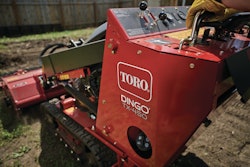Contractors who prohibit abusive and profane language, harassment and verbal, mental and physical abuse by employees are no longer in danger of violating free speech rights, according to a ruling the National Labor Relations Board made late last year.
“It is preposterous to conclude that employees are incapable of organizing a union or exercising their other statutory rights under the NLRB without resort to abusive or threatening language,” said the board in its ruling.
The NLRB issued the Nov. 19 decision in a case involving Martin Luther Memorial Home, Inc. because of difficulties faced by employers, including those within the construction industry, in maintaining a “civil and decent” workplace without infringing on Section 7 activity.
That section provides workers the right to organize a union and bargain collectively. Employers may not interfere with, restrain or coerce employees in the exercise of these rights, according to the NLRB.
“It’s a common-sense ruling,” said Maurice Baskin, a lawyer with the Venable law firm in Washington. The firm provides legal counsel to the Associated Builders and Contractors.
Baskin said prior to the new ruling, the NLRB had taken a broad interpretation of the section. As a result, employers had a hard time enforcing rules to uphold order and discipline while still preserving rights guaranteed by law.
“Employers were caught in the middle,” he said. “[Prior rulings] seemed to tell employers that they couldn’t enforce rules against abusive and profane language. They were in jeopardy.”
The case prompting the NLRB ruling focused on a nursing home (Martin Luther Memorial Home). Baskin said in that particular case, the nursing home was attempting to legally keep its employees from using foul language against them.
“[The ruling] has returned much needed balance,” Baskin said.
The NLRB ruling also states that policies prohibiting solicitation and loitering were in violation of Section 7 rights for being overly broad or ambiguous. The ruling addressed other employment policies as well.
In 2004, workers in the public sector had a union membership rate more than four times that of private-sector employees, according to the U.S. Bureau of Labor Statistics. The rate for private industry workers, at 7.9 percent in 2004, was about half what it had been in 1983.
The construction industry has a union membership rate of 14.7 percent, one of the larger percentages within the private industry, according to the BLS.
Patrick Beeson can be contacted at [email protected].










